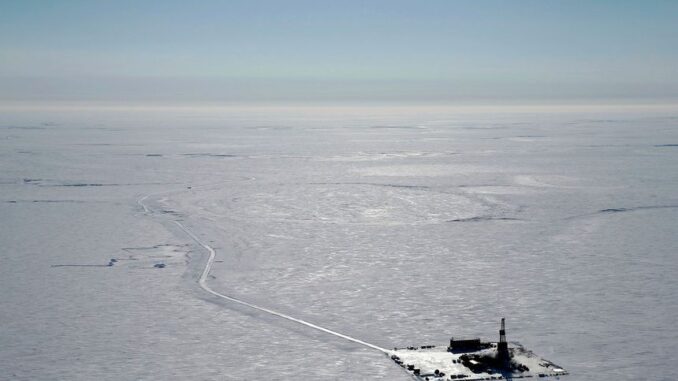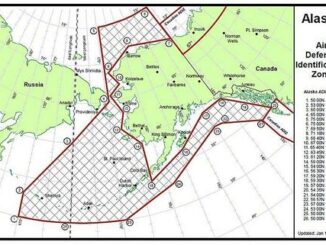
WASHINGTON—President Biden moved to block future oil and gas leasing in the Arctic Ocean’s federal waters, part of a sweeping plan to protect 16 million acres of land and water in Alaska.
Sunday’s announcement comes as the administration is preparing to approve the massive Willow oil-drilling project in the Alaskan Arctic over the objections of environmentalists and many Democrats who wanted the project scuttled, according to people familiar with the matter.
The limits apply to future leases and wouldn’t stop ConocoPhillips’s Willow project from moving forward. The company has held key oil and gas leases in the region for years.
The Interior Department said Mr. Biden had decided to make about 2.8 million acres in the Arctic’s Beaufort Sea off limits to future oil and gas leasing indefinitely. The move completes a years-long effort by Democrats to restrict fossil-fuel development in the U.S. Arctic Ocean, building on previous moves by then-President Barack Obama to block leasing in the Chukchi Sea and part of the Beaufort Sea.
As part of the conservation plan, the administration will also move to issue new federal rules limiting oil and gas leasing on 13 million acres of Alaska’s National Petroleum Reserve, and extend protections to key rivers and lakes in the state.
Administration officials argued that the efforts will form a “firewall” against future oil and gas leasing in the Arctic and federal lands in Alaska’s North Slope.
The expected approval of the Willow project will nonetheless anger environmental activists, who for years have fought against a project they have described as a ticking carbon bomb.
The project has won the support of the oil-and-gas industry, Alaska’s congressional delegation and many Alaskan natives. The White House has declined to comment on Willow’s expected approval.
Companies have been active in offshore Arctic fields since the late 1960s but in the past decade, operators such as Shell PLC have abandoned their Arctic plans after drilling wells that yielded little oil and gas. Pressure by environmental groups to preserve federal waters, difficulty obtaining permits, and icebound seas and unpredictable weather, which make exploration expensive and dangerous, have led many large oil companies to ditch development plans in the region.
In 2015, Shell put an end to a $7 billion Arctic campaign due to disappointing production results against the backdrop of falling oil prices. BP PLC left Alaska in 2020 after being active in the region for 60 years, selling its holdings for $5.6 billion to Hilcorp Energy Co.
Lease sales in federal waters off the coast of Alaska have attracted little interest in recent years. A December federal lease sale off Alaska’s south central coast saw only one bidder, Hilcorp, make an offer on one block in Lower Cook Inlet.
New restrictions on drilling in Alaska’s National Petroleum Reserve could potentially undermine incentives for further oil and gas development there if they go far enough, analysts at research firm ClearView Energy Partners LLC wrote in a note on Sunday.



